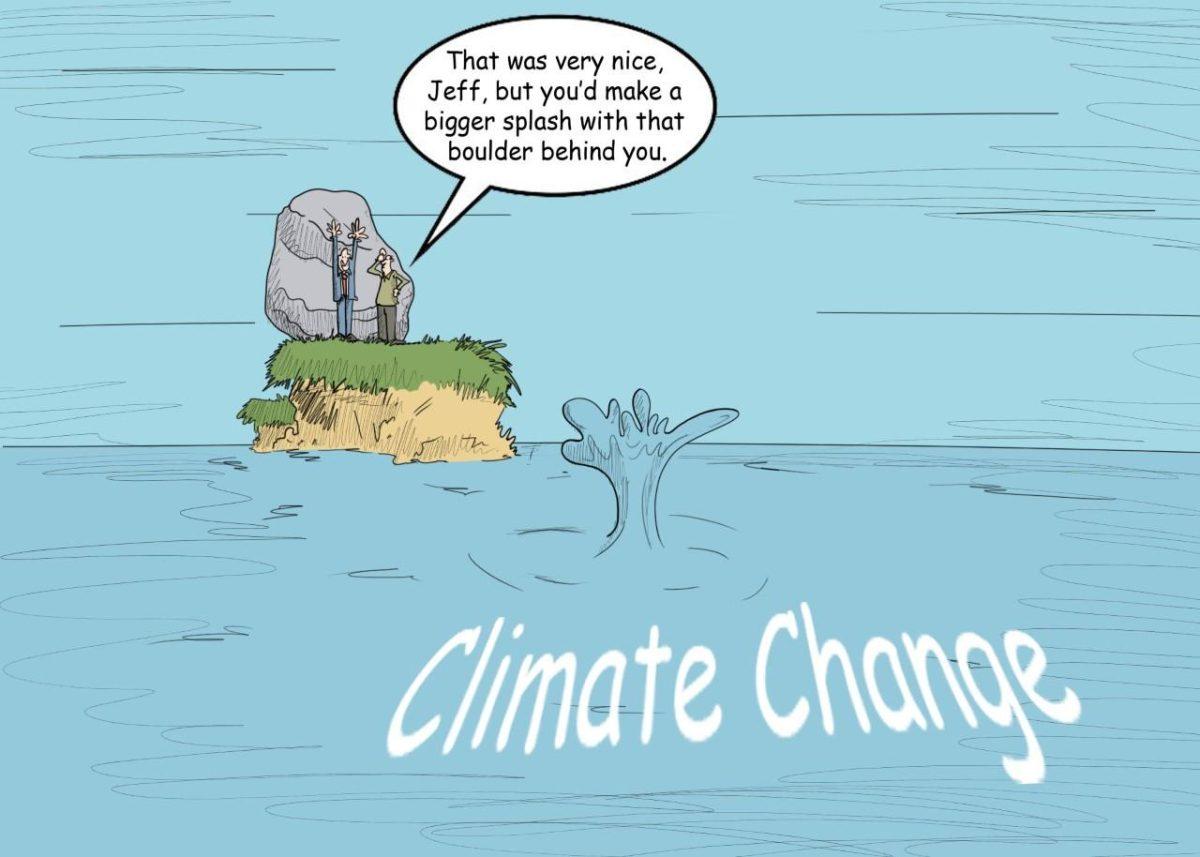Amazon CEO Jeff Bezos recently donated $10 billion to combat climate change in his new initiative, the “Bezos Earth Fund.” While this donation of 7-8% of his wealth seems like a kind gesture, there may be less than pure intentions attached to the contribution.
Bezos’s sudden burst of philanthropy follows his power move purchase of the most expensive property in Los Angeles, accounting for $165 million. Although that sum of money sounds like a lot to many, it reportedly accounts for only 0.13% of Bezos’s ridiculous amount of wealth. This was met with fiery backlash on social media, likely prompting his donation, which seems like an attempt to get back in everyone’s good graces.
If Bezos truly wants to help the efforts against climate change, he’d better think about his own company and the sustainability efforts within it. With Amazon at the top of e-commerce, offering services like Amazon Prime’s same-day shipping, they are responsible in part for the large greenhouse gas emissions resulting from U.S. imports consumerism.
Looking past Amazon’s excessive use of cardboard and plastics packaging, Bezos’s monetary help with climate change should almost be mandatory considering his amount of wealth. As the government takes a step back from environmental issues, citizens are forced to rely on other resources, including billionaires like Bezos who should be helping anyway. Instead, billionaires want their audiences to perceive them and their companies as the good guys heroically saving the day, instead of seeing this as a urgent and necessary measure.
The younger generations seem to be the only ones really concerned about climate change and environmental issues. Older generations tend to have a reoccurring mentality of this “I won’t live to see it,” viewpoint, which is woefully ignorant and selfish.
This mindset does nothing but leaves younger generations to deal with increasingly big messes that will eventually become irreversible. This societal stress and moral responsibility puts a weight on the younger generations’ shoulders, which directly corresponds with the loss of work ethics, damaged personal relationships and increasing mental health issues.
College students especially deal with a great sense of responsibility for the planet, considering that they are the future doctors, scientists and parents of the world. However, not many colleges and universities themselves have created reputable programs to address the issue on both a campus and nation-wide scale.
It’s ironic that there isn’t widespread action on our own campus, considering that Louisiana coastal erosion may make the University disappear in future years. Buried beneath sustainability efforts, it seems as if the University is hesitant to endorse something clearly marked with the words “global warming” or “climate change.”
Both the University and students should pay more attention to small campus sustainability efforts and make efforts to grow our environmental programs and initiatives, so that they gain the platform they deserve. The protection of the environment should not be forced into the hands of a couple of college students. All of us need to be held accountable.
Gabrielle Martinez is a 19-year-old mass communication freshman from Gonzales, Louisiana.





